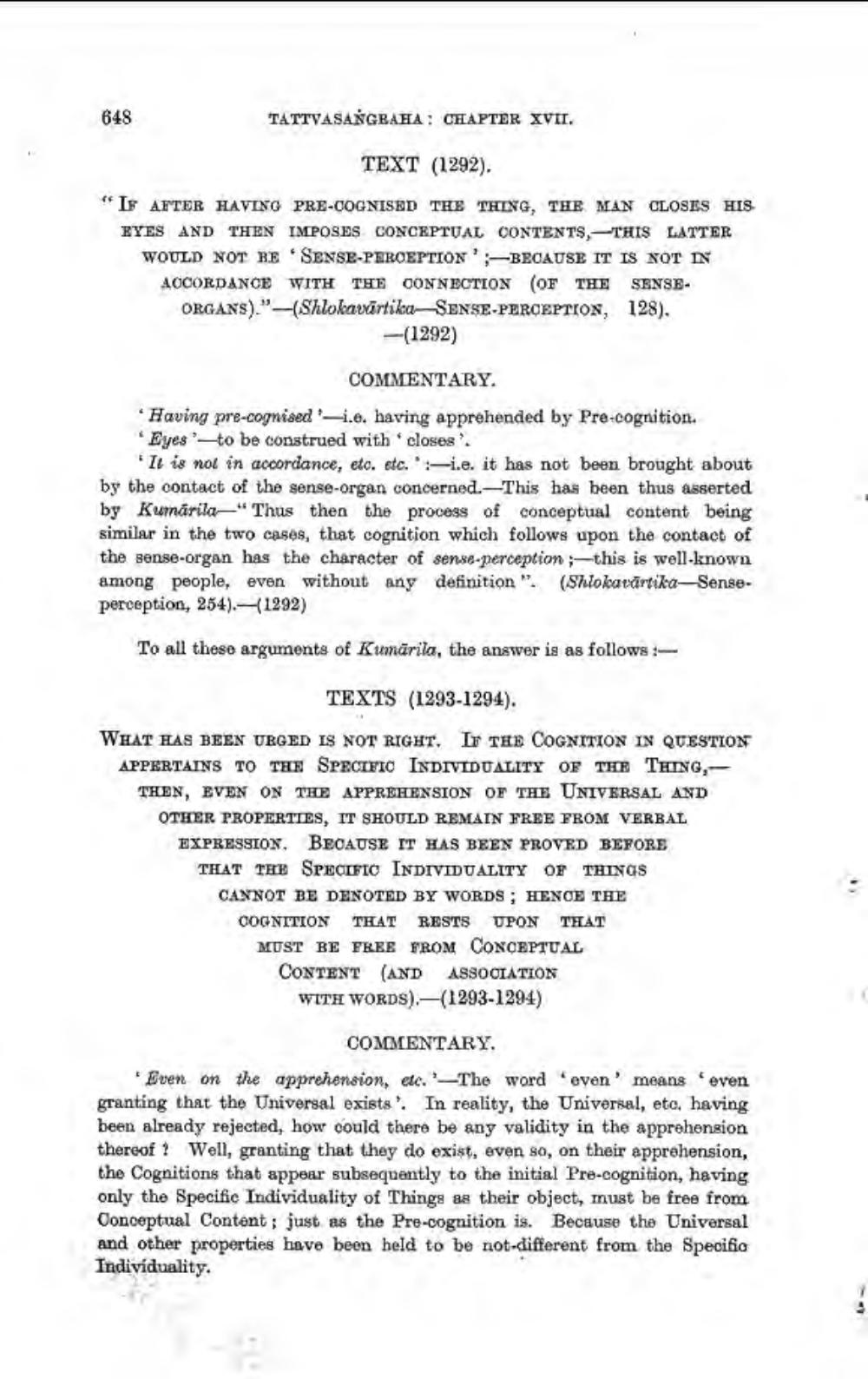________________
648
TATTVASANGRAHA: CHAPTER XVII.
TEXT (1292).
"IF AFTER HAVING PRE-COGNISED THE THING, THE MAN CLOSES HIS EYES AND THEN IMPOSES CONCEPTUAL CONTENTS, THIS LATTER WOULD NOT BE SENSE-PRECEPTION -BECAUSE IT IS NOT IN ACCORDANCE WITH THE CONNECTION (OF THE SENSEORGANS)."-(Shlokavārtika SENSE-PERCEPTION, 128),
-(1292)
COMMENTARY. Having pre-cognised i.e. having apprehended by Pre-cognition. Eyes to be construed with closes
It is not in accordance, etc. etc.:i.e. it has not been brought about by the contact of the sense-organ concerned. This has been thus asserted by Kumarila—"Thus then the process of conceptual content being similar in the two cases, that cognition which follows upon the contact of the sense-organ has the character of sense-perception ; - this is well-known among people, even without any definition". (Shlokavārtika-Senseperception, 254).—(1292)
To all these arguments of Kumārila, the answer is as follows:
TEXTS (1293-1294).
WHAT HAS BEEN URGED IS NOT RIGHT. IF THE COGNITION IN QUESTION APPERTAINS TO THE SPECIFIC INDIVIDUALITY OF THE THING,THEN, EVEN ON THE APPREHENSION OF THE UNIVERSAL AND OTHER PROPERTIES, IT SHOULD REMAIN FREE FROM VERBAL EXPRESSION, BECAUSE IT HAS BEEN PROVED BEFORE THAT THE SPECIFIC INDIVIDUALITY OF THINGS CANNOT BE DENOTED BY WORDS; HENCE THE COGNITION THAT RESTS UPON THAT MUST BE FREE FROM CONCEPTUAL CONTENT (AND ASSOCIATION WITH WORDS).-(1293-1294)
COMMENTARY.
Even on the apprehension, etc. The word "even' means even granting that the Universal exists'. In reality, the Universal, etc, having been already rejected, how could there be any validity in the apprehension thereof? Well, granting that they do exist, even so, on their apprehension, the Cognitions that appear subsequently to the initial Pre-cognition, having only the Specific Individuality of Things as their object, must be free from Conceptual Content; just as the Pre-cognition is. Because the Universal and other properties have been held to be not-different from the Specific Individuality.




